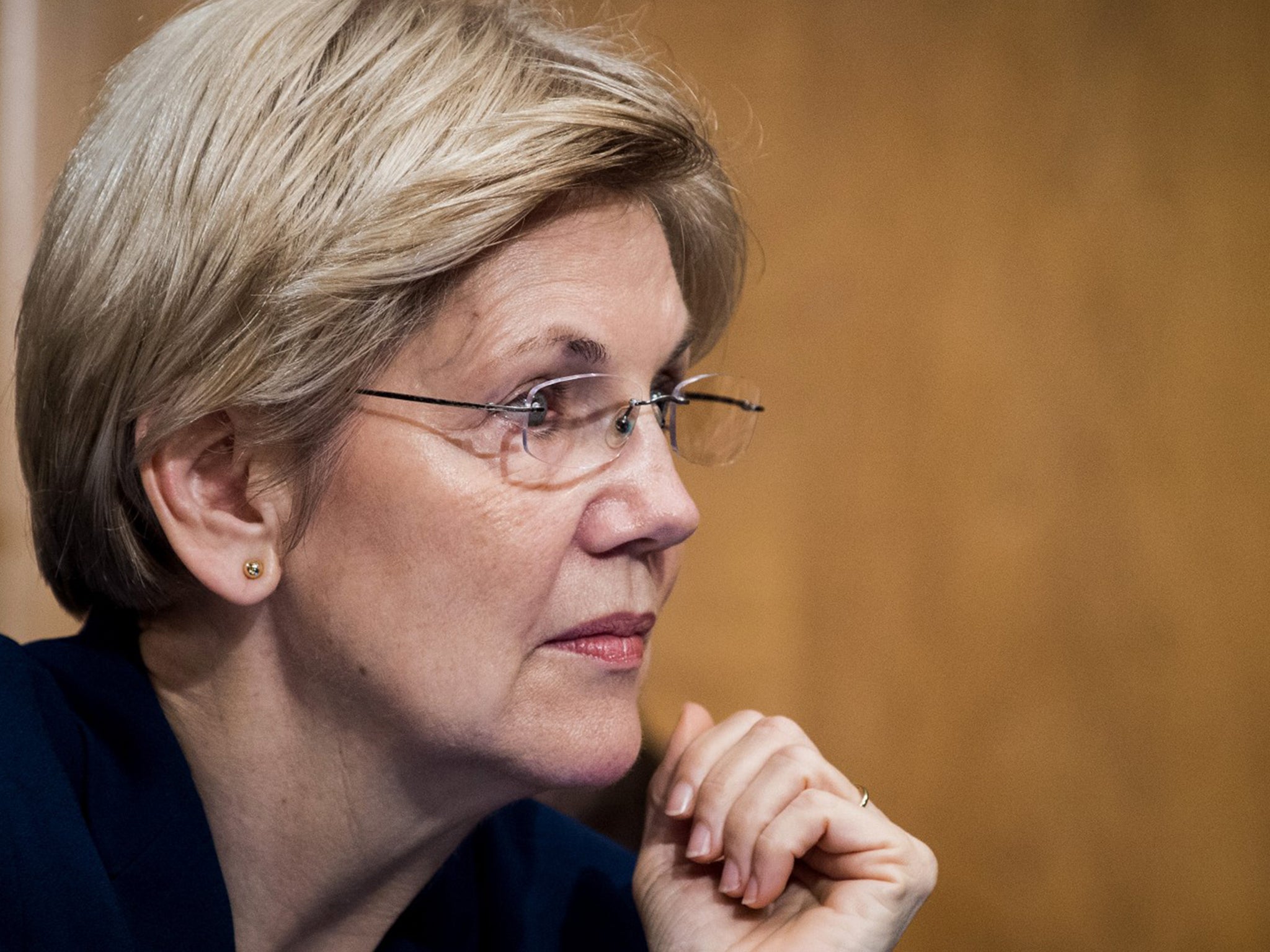Accountable Capitalism: What is Elizabeth Warren's new bill and how significant is it?
'America’s biggest companies have dedicated themselves to making the rich even richer,' says Ms Warren

Your support helps us to tell the story
From reproductive rights to climate change to Big Tech, The Independent is on the ground when the story is developing. Whether it's investigating the financials of Elon Musk's pro-Trump PAC or producing our latest documentary, 'The A Word', which shines a light on the American women fighting for reproductive rights, we know how important it is to parse out the facts from the messaging.
At such a critical moment in US history, we need reporters on the ground. Your donation allows us to keep sending journalists to speak to both sides of the story.
The Independent is trusted by Americans across the entire political spectrum. And unlike many other quality news outlets, we choose not to lock Americans out of our reporting and analysis with paywalls. We believe quality journalism should be available to everyone, paid for by those who can afford it.
Your support makes all the difference.Massachusetts Senator Elizabeth Warren has introduced a new bill that aims to hold US corporations accountable for its responsibilities to its employees – and to end practices that exclusively make the richest Americans even richer.
“Accountable Capitalism Act” claims that corporations over the years have focused primarily on maximising returns to their shareholders and not its responsibilities to its workers and community alike.
The new bill would change that; the act would shift the capitalism dynamic back to a time in the US when Ms Warren declared “American companies and workers thrived”.
In an opinion piece for The Wall Street Journal, the Democrat senator argued that prior to a shift in dynamics in the early 1980s, US corporations balanced their responsibilities to employees, shareholders and its communities.
“Late in the 20th century, the dynamic changed,” Ms Warren wrote. “Building on work by conservative economist Milton Friedman, a new theory emerged that corporate directors had only one obligation: to maximise shareholder returns.”
Mr Friedman notably wrote the widely-analysed New York Times Magazine article titled “The Social Responsibility of Business is to Increase it Profits” in 1970.
What is the Accountable Capitalism Act?
Under the Accountable Capitalism Act, corporations with more than $1bn in annual revenue would require a federal corporate charter.
The charter would ensure corporations consider its workers and community in company decisions. As a result, the act would allow shareholders to sue if they conclude corporate directors have not fulfilled their obligations to all stakeholders, which includes its employees.
What will Warren’s new bill do?
- Ms Warren’s new bill would allow employees of corporations to elect at least 40 per cent of a corporation’s board members
- Restrict the incentives of corporate executives to focus exclusively on compensation from shareholder returns, by prohibiting them from selling company shares within five years of receiving them or within three years of a company stock buyback
- Corporations would have to receive the approval of 75 per cent of their shareholders and 75 per cent of their directors (which would include directors elected by employees) prior to making any political expenditures
- Federal government could revoke a corporation’s charter if it’s found to have a “history of egregious and repeated illegal conduct and has failed to take meaningful steps to address its problems”
Why is this bill significant?
Income inequality has increasingly become an issue in the US. A 2017 report by progressive Economic Policy Institute estimated that people earning in the top 1 percent earned 81 times more than the bottom 50 per cent adults before tax. In 1980, the institute calculated that the top 1 percent earned 27 times more than the bottom 50 per cent.
Wealth distribution has continually been on the forefront of political debates. As more progressive candidates across the US this year have advocated for federal policies, like universal healthcare, income inequality and the government's role, will serve as significant discourse in the 2020 presidential election.
Ms Warren has also argued that between 2007 and 2016, large American companies have now dedicated an overwhelming majority, 93 percent she claimed, of their earnings to shareholders, compared to decades ago when companies sent less than half of their earnings.
"Because the wealthiest 10 per cent of US households own 84 percent of American-held shares, the obsession with maximising shareholder returns effectively means America’s biggest companies have dedicated themselves to making the rich even richer."
Join our commenting forum
Join thought-provoking conversations, follow other Independent readers and see their replies
Comments